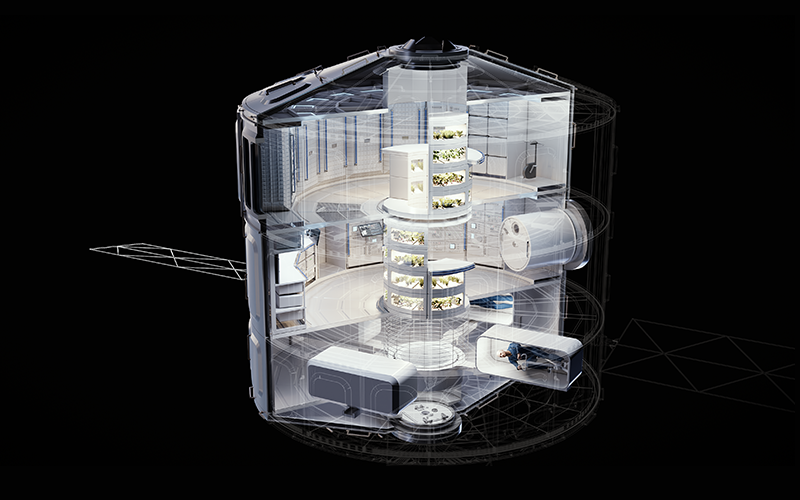
US-based startup Voyager Space and Airbus Defence and Space have announced an agreement to develop, build, and operate Starlab, a commercial space station. The pair aim to offer the station that as a destination in low Earth orbit for US and European astronauts following the retirement of the International Space Station.
The agreement announced on 2 August expands on the initial partnership between the two companies announced in January. Although the press release for this latest announcement does indicate that the venture will be US-led, it does not outline the division of labour or the amount that each company will contribute to the endeavour. Airbus may, however, have given us a clue as to what element of the station the company will be focused on.
In April 2023, Airbus published a page on its website for its LOOP Multi-Purpose Orbital Module concept that bore a striking resemblance to the main module featured in Starlab imagery. This may indicate that Airbus will be taking the lead in developing and producing the primary pressurized module for Starlab.
Airbus does offer significant experience in developing in-space infrastructure. The company is part of ESA’s industrial team responsible for Europe’s contributions to the ISS. EADS-Astrium, one of the companies that would merge to become Airbus Defence and Space, was the primary contractor for the Columbus module. Airbus is also the primary contractor for the European Service Module that provides power, propulsion, and consumables to NASA’s Orion spacecraft that will return humans to the Moon in the coming years.
Voyager Space will bring to the table the work it has has done on the Starlab station since its founding in 2019. It also offers the support of NASA through a $160 million Space Act Agreement awarded in December 2021 via Nanoracks, a company that is part of Voyager’s exploration segment.
Although Starlab will be US-led, a joint venture subsidiary will be set up in European to allow the pair to more directly service ESA and its member state space agencies.
In June 2023, the Starlab design reached a major milestone with the completion of a Systems Requirements Review which examines major space systems, technical readiness, and the ability to meet NASA’s mission and safety requirements. The continued partnership between the pair is, however, still subject to applicable regulatory approvals. If all goes well, Starlab could be launched as early as 2028.
Additional reading:
Are commercial space stations a fantasy?

